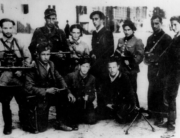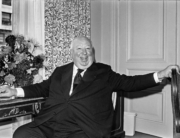
History is traditionally written by the winners, but the American Civil War remains a notable anomaly. More than 156 years later, conversations over the Civil War remains divided by regional and cultural beliefs, some due to obliviousness, others by whitewashing. But it all ties back to a single catalyst—slavery—and the failure to properly exorcise the acceptance of white supremacy’s role in our socio-economic divides. Civil War (or, Who Do We Think We Are), directed by Rachel Boynton, opts to explore this divide with a fly-on-the-wall perspective, providing mixed answers but a larger insight into why the war’s myths persist.
Boynton, also the documentary’s interviewer, routinely ties her observations back into the funhouse mirror-like nature of Civil War discourse. Her subjects range from high school students to their educators to older neighbors from Tennessee and Mississippi who recall fond stories of their Confederate ancestors. Confederate identity still lives on as a paradoxical show of Southern nationalism, despite stemming from the region’s succession from the United States. Hence the longevity of the “Lost Cause,” a claim that economic factors beyond slavery instigated succession, that slaves were treated well by their masters, and that the plantation lifestyle should be sentimentalized outside of its reliance on slavery.
As one Tennessee teacher points out, money and fear were key factors of the South’s economy, and they weren’t willing to give up either when the war ended. Yet Southerners’ ability to sidestep blame was ironically also due to the North, who sought to patch up the country’s divides through a belief in shared battlefield bravery. Kellie Carter, a guest speaker at Lincoln University in Pennsylvania, notes how this adheres to a certain American “hypocritical love affair with violence.” White men committing it signifies power and heroism, but anyone else doing so is terrifying. Thus the erasure of the Reconstruction era from public memory, along with countless stories about Black men who were elected to Congressional office and passed beneficial laws, only to be silenced in massacres like the Clinton Riot.
Interestingly, the interviewees aren’t named. They’re given anonymity outside of a few academics and politicians. At one end are men like Yale Professor David Blight and Howard University’s Greg Carr, who educate their students about the war’s causes and how the South twisted history for vindication. On the other is Mississippi House of Representatives member William Shirley, who vicariously defends the former state flag with its Confederate symbol and believes that Southern history should be taught, even as he waves away the implications of slavery. Yet a montage of events calls out this flag devotion as protests from the 1960s to Charlottesville put racist romanticism front and center. The flag’s symbolism is retained, while cemeteries holding Black victims of the racist backlash have fallen into decay and down our collective memory hole.
To reconcile with the Civil War’s causes is to confront a horrifying part of history that, for all intents and purposes, never disappeared. Yet teaching this subject remains complicated. Near the end, Boynton draws attention to the relationship between a teacher and her class, with one Asian American student viewing the conversation as obstructive because, in his eyes, it victimizes White and Black people alike. While his arguments aren’t spoken with malicious intent, he nevertheless resists the idea of systemic racism influencing modern policies and inequalities, yet he struggles to produce a counterargument when challenged. That desire to find a new truth, even when the evidence isn’t that hard to comprehend, that’s America’s dilemma right there.
Civil War (or, Who Do We Think We Are) is worthwhile for addressing how deeply the White pushback to Civil War history remains. The fact that we’re still fighting over which history gets to win out only means that, despite progress being made, there’s still more work to be done before our country can understand its past.






Leave A Comment